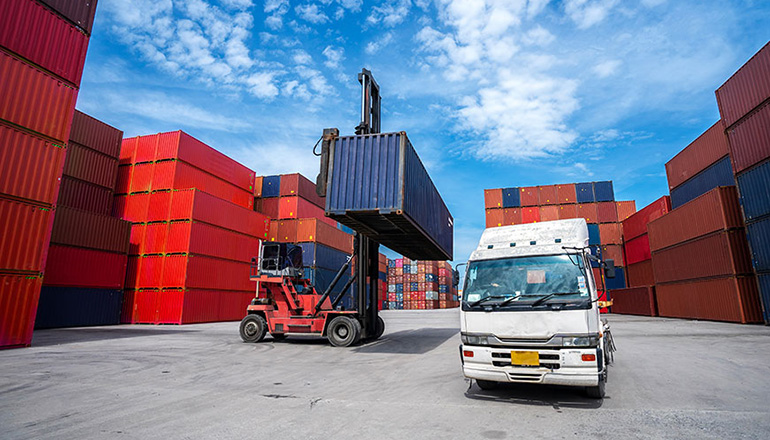The definitions of these phrases and the advantages of each form of shipment are provided below.
What does the shipping term FCL mean?
Full Container Load is referred to in maritime parlance as FCL. This indicates that a shipment doesn’t have to share a container with other shippers; it takes up the entire container. One shipper is the exclusive owner of the entire cargo in an FCL shipment.
Shipping companies provide a range of containers that vary in size and purpose.
- Conventional dry containers
- Cold-holding containers
- Tanker trucks
- Containers with flat racks
- Containers with flat racks that collapse
- These containers range in length from 20 to 40 feet on average.
Benefits of FCL
You can either provide the shipper with instructions to load your container or load the material yourself.
Once loaded, the container is transported to the port, where it is put onto a cargo ship. The shipping corporations have scheduled departures from and arrivals at all of the world’s main ports.
Your items are delivered to the consignee after being unloaded from the container when it reaches its destination. Complete container shipments may include using many modes of transportation, including trucks, trains, and, if necessary, aircraft, to get cargo from the point of origin to the final destination.
Disadvantages of FCL
The higher costs of FCL are a drawback. You are responsible for paying for and accommodating the entire FCL container if you use one. This typically increases the procedure’s cost.
Not Appropriate for Little Packaging FCL does not provide service to importers and exporters with lower cargo volumes.
What does LCL mean and how does it work?
LCL, or “Less than Container Load,” is the opposite phrase.
Little maritime freight shipments that don’t utilize a container’s full capacity are transported using this method. An LCL container is often known as a “consolidated container” for this reason. A container is shared by several shippers on an LCL shipment. As the cost of shipping a full container is split, an LCL shipment is typically less expensive when there is not enough cargo to fill the entire container. An LCL shipment will have a greater CBM cost than an FCL shipment, but the overall cost is frequently lower.
Benefits of LCL
Less than Container Load (LCL) is a flexible and economical option for moving smaller, less urgent shipments between the major ports of the world.
Whatever the size of the item, our adaptable shipping technique can handle it. The benefit is that you don’t have to wait for your items to fill a whole container; instead, you may send your goods on their way as soon as they are prepared.
Keep in mind that you cannot select the other types of goods you share the container with when shipping LCL. Also, because the container is being utilized by numerous parties, there can be delays that are out of your control. On the busiest routes, shipping companies frequently provide set departure schedules with assured cargo capacity.
Disadvantages of LCL
LCL shipping has some drawbacks, including the need to load and unload LCLs from containers at both the shipping and destination ports, which increases the total shipping time.
Compared to FCL shipments, LCL shipping can cost much more per cubic meter.
Additional LCL commodities in cargo can experience delays due to customs difficulties.
LCL shipments require more handling, which raises the possibility of damage.
What distinguishes LCL and FCL from one another?
“Full container load” is referred to as FCL. In an FCL arrangement, the consigned shipment uses the entire container and is not shared with other consignees. Several consignments share space in a single container with an LCL, or less than container load, shipment. Whereas LCL only covers the space the shipment takes up in a single container, FCL requires the customer to cover the cost of the entire container space.
How do I choose between FCL and LCL?
The weight and dimensions of the shipment are the two most important considerations to take into account when deciding between FCL and LCL. For instance, it might be less expensive to ship a consolidated container if it only contains one or a few pallets.
But, you must also take into account the nature of your shipment: Have you got something dangerous? How soon must the package arrive? An FCL can be a better choice if you’re delivering hazardous materials or you need your shipment to arrive fast.
In other forms of transportation, FCL and LCL
FCL (full container load) and LCL (less than container load) are terms often used on air, rail, and truck freight in addition to shipping. For instance, forwarders use the extremely similar acronyms FTL, which stands for “full truck load,” or LTL, which stands for “less than truckload,” when shipping packages via truck.



